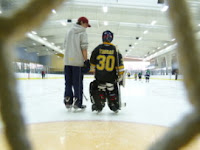Catherine Lord
is the director of the Center for Autism and the Developing Brain, a
subsidiary of Weill Cornell Medical College and New York Presbyterian
Hospital. She wrote this piece for CNN.com.
This week, the Centers for Disease Control and Prevention released its newest study on the rate of autism among 8-year-olds, showing that 1 in 88 has some form of the disorder. Previously, it was 1 in 110. Does the new figure indicate that we are seeing an epidemic of autism, as some have speculated?
One possibility is that we are seeing the result of better detection rather than a real surge in autism.
 |
| Catherine Lord |
However, there are some
striking parts about the study, which used data from 2008 collected in
14 sites across the United States. The rate of autism increased by more
than 45% from 2002 to 2008 in numerous sites. It was a larger and more
consistent increase than from 2002 to 2006. Also intriguing is that the
increase was very uneven in terms of geography, gender, race and
ethnicity.

























